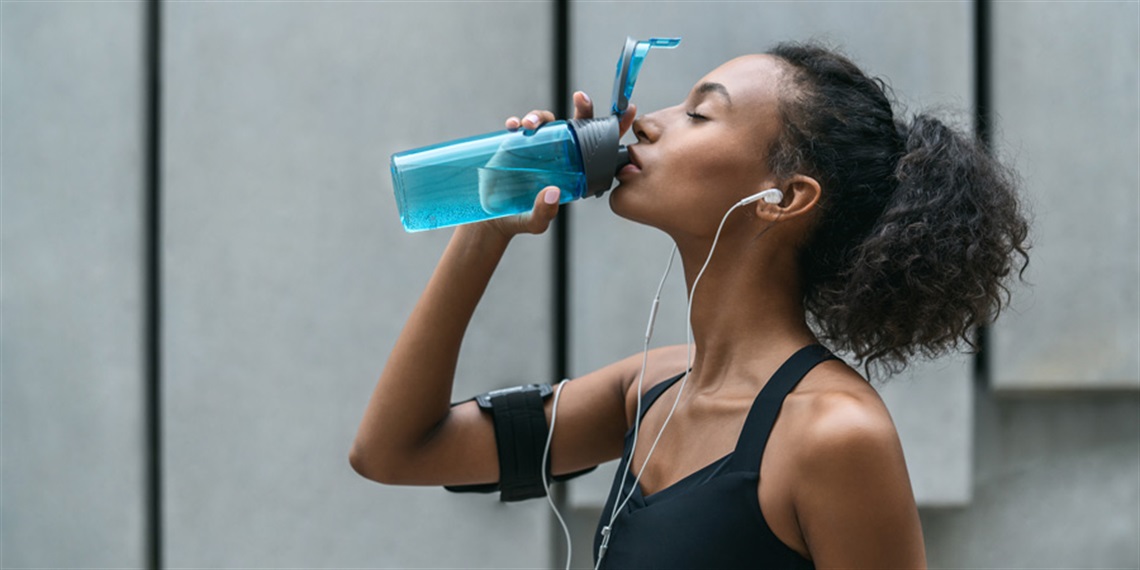Just add water
Published on 18 October 2021

It’s important to replace fluids lost through sweat when exercising.
As Manning explains, we can’t intrinsically produce water to satisfy our need for it and it’s needed for all sorts of bodily functions.
“Most of our biochemical reactions actually occur in water and it helps to provide structure to all sorts of components of the body. It’s needed for digesting, transporting and absorbing nutrients,” the dietitian says.
Temperature check
When it comes to exercise, there are a few reasons why water becomes important, one of which is keeping your temperature in check.
“The means of your body keeping cool during exercise is through sweating. Every bead of sweat from your skin helps carry heat out of the body and water keeps our temperature in that narrow range. The only downside of that is we lose fluid as a result,” the personal trainer explains.
Essentially, if you’re working out in a warm or humid environment, like Bikram yoga, or doing an intense workout, your rate of perspiration will increase and so will your loss of fluid.
If you sweat too much without replenishing, Manning warns you risk becoming dehydrated, or worse, suffer from heat exhaustion. Dehydration caused from excessive sweating and loss of water can cause muscle cramps, weakness and vomiting.
Hydrating before, during and after your workout
Everyone’s workouts are different, and so are your hydration needs.
The amount of water you need to rehydrate depends on a range of factors, such as climatic conditions, your health, your clothing, your exercise intensity and duration.
Hydration needs are highly individualised due to variations in sweat rates between people due to fitness level, body size, etc, or even for the same person exercising in different conditions.
“Some individuals will start sweating earlier or later, less or more, and will have differing sweat compositions and what makes it even trickier is that many of these factors are not set in stone,” Manning explains.
While being well hydrated will differ with each person and situation, Manning advises “matching your fluid intake with your fluid loss”.
As a general rule, he suggests replacing 125 to 150 per cent of fluid within two to six hours of a workout.
For example, if a person weighing 50kg loses one litre of fluid, they would aim to drink around 1.25 to 1.5 litres of fluid over a period of time.
Let’s face it, most of us are good at taking water with us when visiting the gym to stay refreshed, however it’s equally as more important to ensure you’ve topped up your fluid levels both prior to and after a session. This not only applies to the gym, but when doing any physical activity.
Drinking the right amount of fluids before, during and after physical activity is vital to providing your body the fluids it needs to perform properly.
If you’re after specifics, Manning recommends speaking with an accredited sports dietitian who can assist by developing an individualised plan to enhance performance.